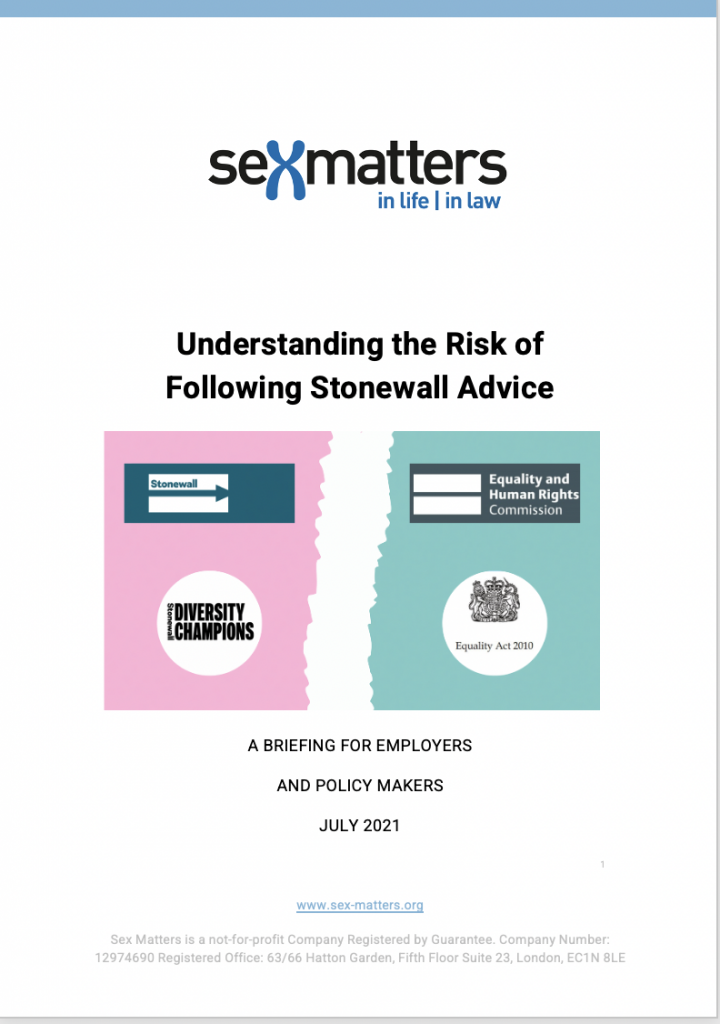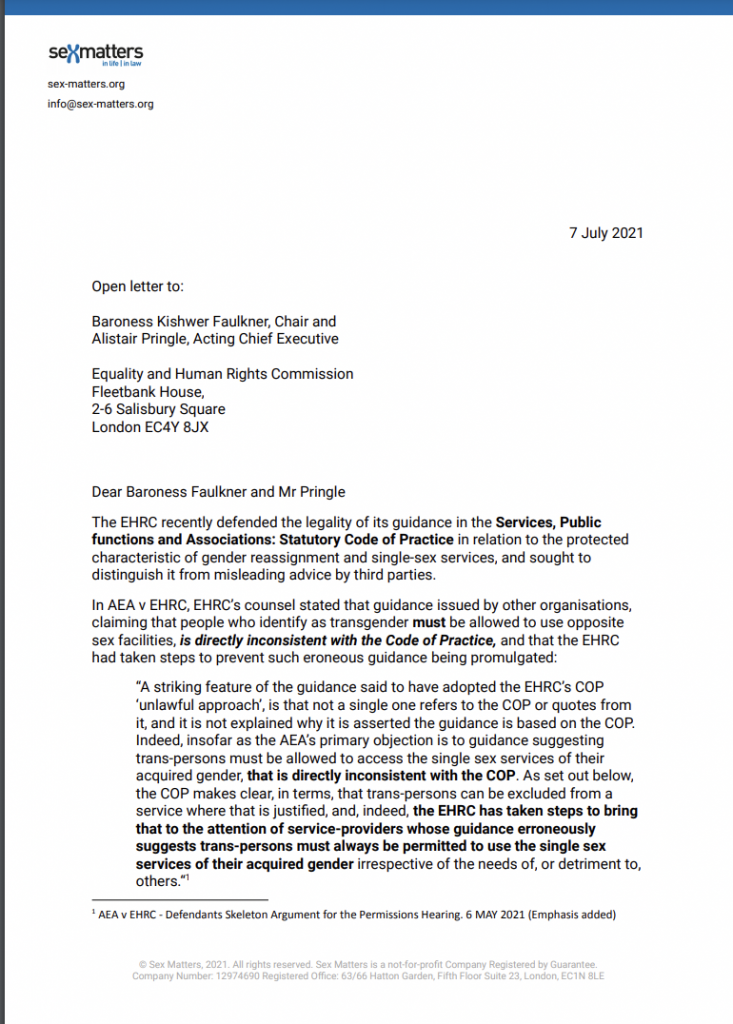Employers: consider Stonewall risk
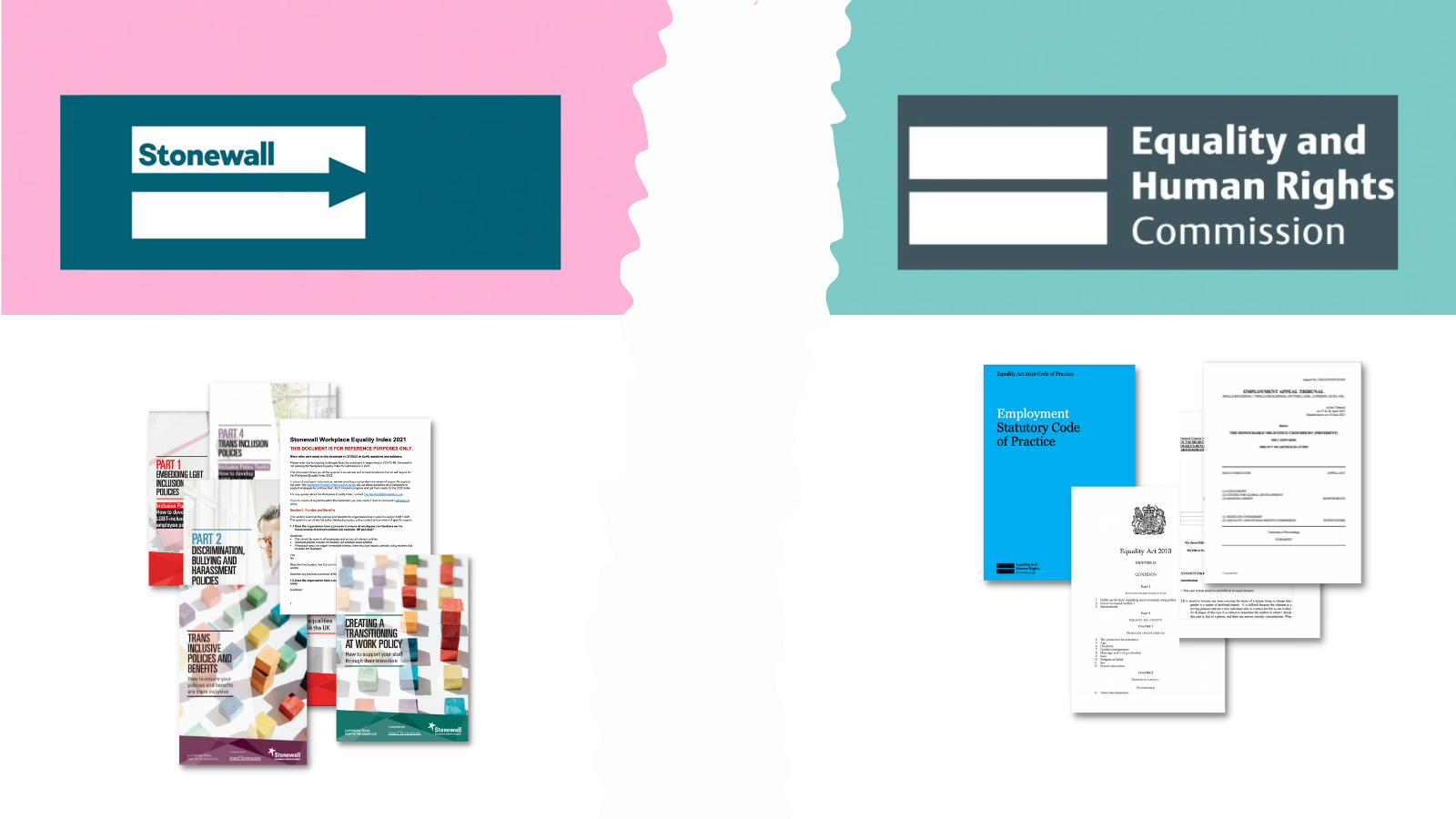
Should I stay or should I go?
At least 40 organisations that we know of have left Stonewall including the Cabinet Office, Ministry of Justice, Ofsted and the Equality and Human Rights Commission.
- Anglian Water
- Bristol, North Somerset and South Gloucestershire Care Commissioning Group
- Cabinet Office
- Cancer Research UK
- Channel 4
- CIPD (Chartered Institute of Personnel & Development)
- Civil Nuclear Constabulary
- Cwm Taf Morgannwg University Health Board
- Dorset Police
- DVLA
- Equality and Human Rights Commission
- Government Equalities Office
- House of Commons
- London Borough of Bromley
- London Borough of Hounslow
- Millbrook Healthcare
- Ministry for Housing, Communities and Local Government
- Ministry of Justice
- Moon Beever
- MTR Crossrail
- Nationwide Building Society
- NHS Highland
- North East Ambulance Service
- North Lanarkshire Council
- North Wales Police
- Northumbria Police
- Ofsted
- Primark
- Solent University, Southampton
- St Barnabas Hospices
- Swim England
- The Co-operative Bank
- Thurrock Council
- University College London (UCL)
- University of Winchester
- West London College
- West Sussex County Council
- West Yorkshire Police
- Wrexham County Borough Council
Many others are have said they are reviewing their involvement. Some say they are taking the lead from their LGBT Allies group or LGBT diversity lead. This approach is inadequate since these groups may be tempted to dismiss criticism of the scheme too readily as “transphobia”. Some say they are undertaking value for money assessment. This approach is also likely to be inadequate unless risks are factored in. What is needed is legal due diligence.
Stonewall have defended the scheme saying it is in line with the Statutory Codes of Practice on implementing the Equality Act.
A new report by Sex Matters “Understanding the Risk of Following Stonewall Advice” finds that this is not the case. Read our report, and our letter to the Equality and Human Rights Commission.
Ignoring the protected characteristics of the Equality Act
The Stonewall guidance specifically tells employers to ignore the language used in the Equality Act, leading to confusion about protected characteristics.
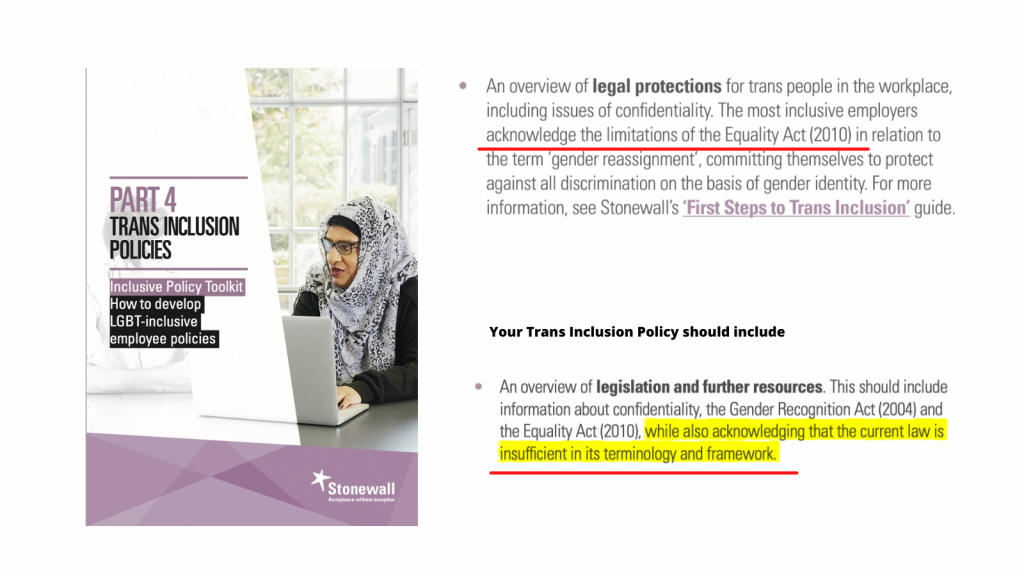
It states that employers should go “above and beyond the law” treating the language in the Equality Act as outdated and offensive
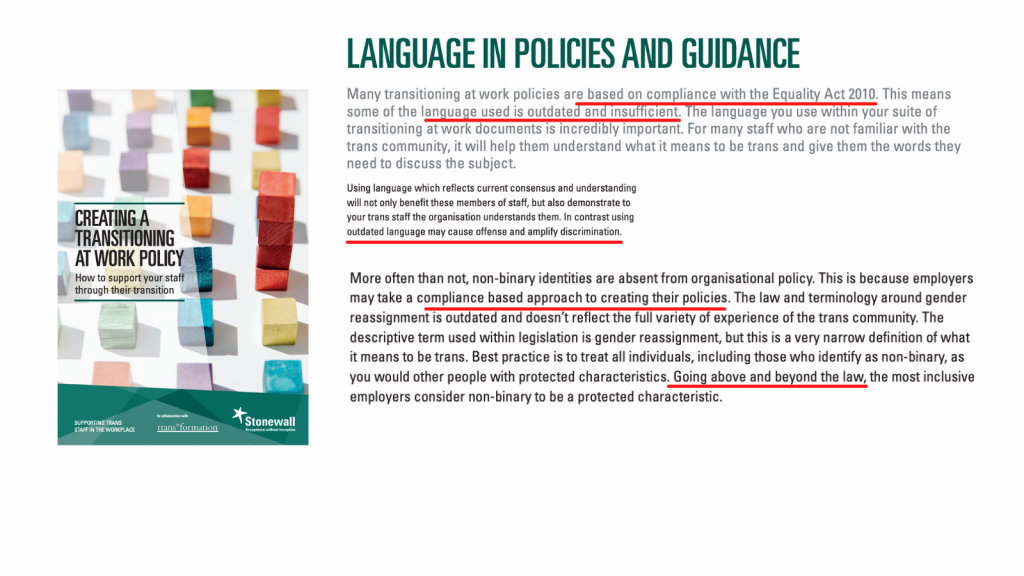
In particular it avoids using the protected characteristic of sex, instead reframing it as “gender identity”. It then also uses “gender identity” as a synonym for “gender reassignment” (being transsexual in the words of the Equality Act). This gives employers the impression that the Equality Act supports the statement that “trans women are women” … when in fact the Equality Act treats the protected characteristics of sex and gender reassignment separately.
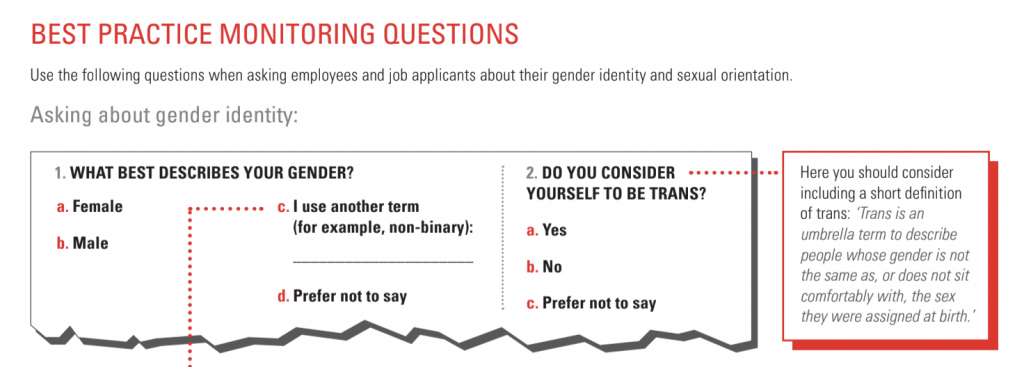
Single sex spaces
In the recent judicial review brought by AEA on the Service Provider Statutory Guidance the EHRC stated that “guidance suggesting trans-persons must be allowed to access the single sex services of their acquired gender… is directly inconsistent with the Code of Practice”. The EHRC said they have “taken steps to bring that to the attention of service-providers whose guidance erroneously suggests trans-persons must always be permitted to use the single sex services of their acquired gender irrespective of the needs of, or detriment to, others.“
Stonewall deny any such detriments to others and says that employers should let staff chose which toilets and other single-sex facilities they feel most comfortable in depending on their gender identity, and that other staff should be told that this is their right.
This is not in line with the code of practice which only talks about providing “different facilities”, not a right to use opposite sex facilities.
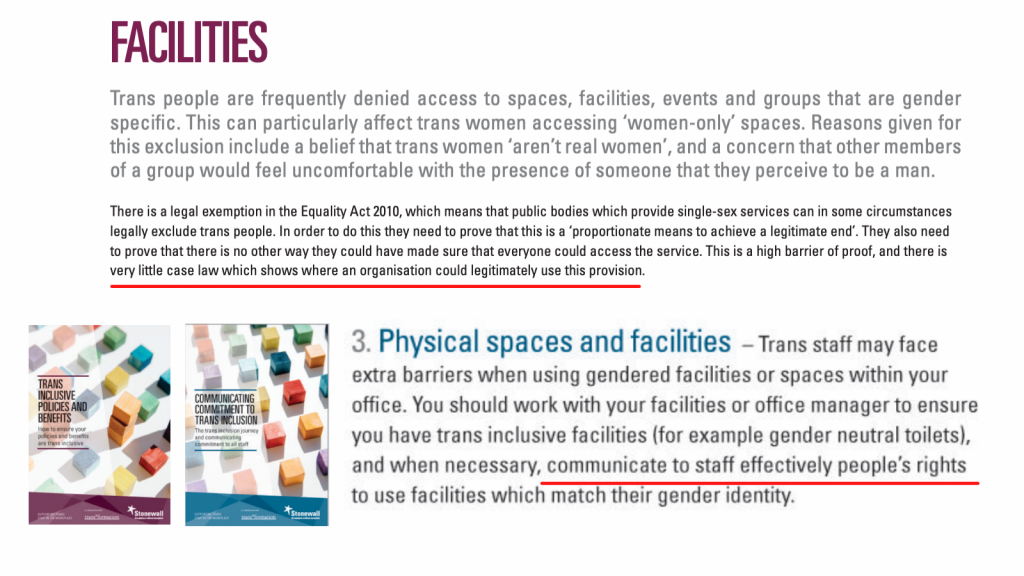
While Stonewall advocates “acceptance without exception” based on gender identity, the Equality Act specifically allows certain jobs such as a changing room assistant, or rape crisis counsellor to be reserved for people who are the same sex as the users of the service. We could not find any mention of this occupational requirement exception in the Stonewall documents we reviewed.
Sex Matters has now written to the Baroness Kishwer Falkner, Chair and Alistair Pringle, Acting Chief Executive of the Equality and Human Rights Commission asking the EHRC to clarify whether they support Stonewall’s claim that its guidance is aligned to the Code of Practice.
What can you do?
We will send our report to every Stonewall Champion and to every minister, MP, peer and member of a devolved legislative assembly.
We are asking our supporters to also write to their MPs and representatives, and to organisations they have links with, highlighting the disagreement between the Stonewall guidance and the Statutory Code of Practice and asking them to leave the Stonewall scheme and return to following the official guidance on law to protects all their employees.

